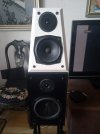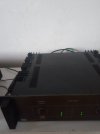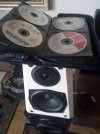Perhaps it's not dismissiveness. Perhaps you are expecting people to catch you up in a couple of posts on some bit of knowledge and insight that took them decades to learn, without committing your own effort and time to the journey.
When I left the public sector the first time, I was hired as a consultant to what was then a prestigious national consulting firm in another city. When I arrived, I was asked to hold a lunch meeting with the younger consultants there to explain my area of expertise to them. I thought, "Huh? You think I can compress my 15 years of progressive experience into a one-hour brown-bag lunch? You must think this stuff is easy."
I'm not saying experts here aren't sometimes curt. But I am saying that most of the questions I have had have already been answered before, if I was willing to read through some of those 100-page threads. And in that reading, I came to realize how weary the experts must be to feel as though they have to explain the same thing over and over again to those who don't want to do that digging and reading. It makes me more forgiving of them, to be honest, when they are abrupt.
I actually learned that before joining this forum. Back in the day, I was active in the Hardcore Bicycle Science mail list, and our favorite curmudgeon was Jobst Brandt, a mechanical engineer at HP who was the first to perform a finite-elements analysis sufficient to actually explain how the structure of a bicycle wheel works, with data to back it up. Lots of technical wannabes challenged him on topics and got singed as a result. A few pouted and sulked and never learned anything. But others became experts in their own right.
On this forum, I'm still one of the fresh-faced beginners sitting at the feet of real experts, faking it until I can make it. For a person my age, though, I believe the correct term to describe me is dilettante. Guilty as charged.
Rick "who doesn't know you, and therefore has no idea whether or to what extent you fit into this concept" Denney



